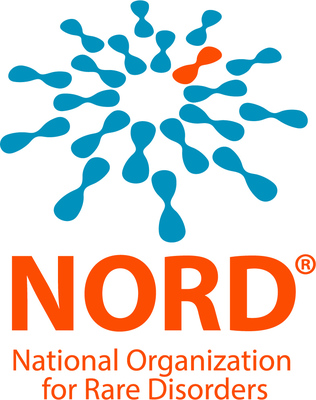Today, the National Organization for Rare Disorders (NORD®) and its Rare Action Network (RAN™) published the 6th Edition of the State Report Card, the annual report rating each state and Washington, DC on the most important issues directly affecting more than 25 million Americans living with rare diseases
|
WASHINGTON, Jan. 27, 2021 /PRNewswire/ -- Today, the National Organization for Rare Disorders (NORD®) and its Rare Action Network (RAN™) published the 6th Edition of the State Report Card, the annual report rating each state and Washington, DC on the most important issues directly affecting more than 25 million Americans living with rare diseases. Despite a year marked by devastating impacts from the COVID-19 pandemic, the State Report Card demonstrates that progress was made in many states on newborn screening, step therapy, Rare Disease Advisory Councils and other key policies. The report also notes the need for states to take additional steps to address out-of-pocket prescription drug costs for rare disease patients and to protect patient access to affordable, comprehensive health care services. "The State Report Card provides insight into the advances being made at the state level in supporting Americans living with rare diseases, and identifies where we still need to focus attention," said NORD President and CEO, Peter L. Saltonstall. "For almost 40 years, NORD has served as the voice of the rare disease community, and we are committed to fighting for rare disease patients and policy changes that will make a difference in their lives. Our hope is that patients, advocates and policymakers find the new State Report Card site a useful tool in their work on policies to best meet the needs of rare patients and families." The 6th Edition of the State Report Card, compiled using data current as of November 2020, is presented in a new digital format, giving improved accessibility to the information contained in previous editions, as well as additional resources. The report provides detailed analysis across eight major policies, grading each state on its performance in those areas. Takeaways from the new report include:
For more information and to view the state-by-state report cards, maps, patient stories, resources and to download a full copy of the State Report Card, visit: http://bit.ly/State-Report-Cards. To learn more about NORD's policy work, visit: http://bit.ly/Policy-Issues. About the National Organization for Rare Disorders (NORD®) The National Organization for Rare Disorders (NORD) is the leading independent advocacy organization representing all patients and families affected by rare diseases in the United States. NORD began as a small group of patient advocates that formed a coalition to unify and mobilize support to pass the Orphan Drug Act of 1983. Since then, the organization has led the way in voicing the needs of the rare disease community, driving supportive policies, furthering education, advancing medical research and providing patient and family services for those who need them most. Together with over 330 disease-specific member organizations, more than 15,000 Rare Action Network advocates across all 50 states, and national and global partners, NORD delivers on its mission to improve the lives of those impacted by rare diseases. Visit rarediseases.org.
SOURCE National Organization for Rare Disorders (NORD) |





